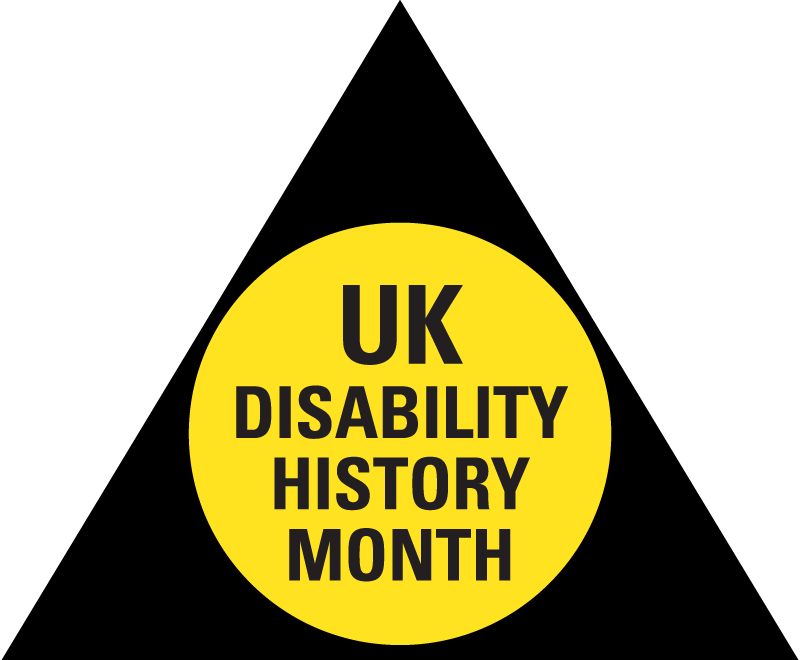This month (March 2015) is the 25th Anniversary of Richard Rieser and Micheline Mason’s report ‘Disability Equality in the Classroom: A Human Rights Issue’. To celebrate this milestone, the authors are holding a two-day conference from 20-21 March, a highlight of which will be a performance headlined by singer, songwriter Johnny Crescendo, the Disability Arts pioneer and founder of the Direct Action Network. Robin Surgeoner talks to the musician about his life and lyrics.
Currently living in Philadelphia, Johnny (real name Alan Holdsworth) is a major player in the U.S. disability equality movement ADAPT, and is Director of ‘Philadelphia Pride’, a celebration of Disability Art and Culture.
Alan describes himself as a sixty ‘odd’ year-old happily married man with two daughters. His successes as a poet, a singer, songwriter and an activist, seem to have been almost accidental.
Johnny (then plain Alan) started writing poetry as a teenager in Manchester. His poetry was first published in the Manchester Evening News when he was thirteen. After this he began performing his musings in various venues, until he joined up with Pete Tye. They formed a duo called Emotion and Alan would sing his and Pete’s poetry to Pete’s hippyish guitar picking. Shortly afterwards the young Alan bought his first guitar and began to teach himself how to play.
Alan had polio as a child and taking life in his stride embarked on a career in Youth and Community Work. In his work he encountered such issues as racism and poverty, and this inspired his song-writing – during this time he wrote the pastiche ‘The British Grenadiers’ and ‘Broke Bolt from The Blue’ – a song about poverty-related suicide. It was whilst working as a Community Group leader in Chesterfield that he began to notice how difficult and compromised life was for so many Disabled People, especially those living in institutions.
Previously, Alan hadn’t really identified with other Disabled People, viewing them as passive recipients of life. It was in sharing their thoughts and frustrations at living lives fractured from mainstream society, and recognizing aspects of himself in their discussions that delivered the inspiration for ‘Choices and Rights’:
Choices and Rights
That’s what we gotta fight for
Choices and rights in our lives
I don’t want your benefit
I want dignity from where I sit
I want choices and rights in our lives
I don’t want you to speak for me
I got my own autonomy
I want choices and rights in our lives
Alan had already established an identity as a politically savvy poet and songwriter (‘Johnny Crescendo’) and shared stages with many of his more famous punk-poet contemporaries, such as Billy Bragg and Chumbawumba, as well as his own long-time friend John Cooper Clark. Alan was also Tony Benn’s driver for a while and a friend of Arthur Scargill’s, and so very much a part of the agitprop scene of the time.
Johnny’s rise to the pinnacle of the Disability Arts Movement came about via someone else’s misfortune. One of the booked artists for the 1987 BCODP AGM in Nottingham was sick, and Johnny was asked to stand in. Johnny zoomed down to Nottingham from Manchester, heard a couple of songs from Ian Stanton, whom he had not yet met, and played four songs of his own. These were an unexpected hit, and Johnny was detained in Nottingham by the crowds of people who wanted to meet him.
Johnny quickly became the hottest act in town, playing AGMs, meetings, and cabarets the length and breadth of the country. He became a national hero for the Disability Activism Movement.
Yet it wasn’t until he met and became friends with the likes of Baroness Jane Campbell, Barbara Lisicki AKA Wanda Barbara, and Ken Davis, that Alan awakened to his own identity as a Disabled Person – someone Disabled by oppression – and to how this made sense of parts of his earlier life.
Alan himself is shy, and almost shambolic. By contrast, Johnny is charismatic, engaging and empowering. He invigorates others through his delivery, his music, his lyrics and his political acumen, and he empowers change through integrity, grit, and determination.
Like many other writers of protest songs, Johnny’s songs are fueled by a passion for justice. Johnny cites injustice, and the need to make things better, as the key to who Johnny Crescendo is. When asked how long it takes to write a song, he replied, ‘It is not how long it takes to write a song, but how long it took to be able to write that song”. For example, ‘The Ballad of Roy & Julie’ took fifteen years from conception to completion, as he needed to be able to write a song about a couple labeled as Learning Disabled who had their baby taken from them. Johnny had to ensure that he could tell the story whilst keeping it accessible to as many people as possible.
In true form and abreast of contemporary politics, as a response to the growing disquiet around assisted dying, and conversely the rise in suicides amongst Disabled People, Johnny has delivered a new gem ‘Suicide City’ ready for his performance at the conference.
Suicide City
Not gonna die in suicide city
And the death docs they
Can piss on pity
When I’m ill
Wont take the pill
And I ‘aint gonna die in suicide city
Aint gonna die for CNN
Or the BBC or all the white men
Or the white coat liberals
Who want rights for them
Or the tragic abled-bodied
Or the brave but dead
Or the political coward who says
I’d be better off dead
Unfortunately there is little footage of Johnny Crescendo, but if there is a video I can point you to it is for the song ‘Pride’, and in many ways consolidates and underpins all that I have said about Johnny Crescendo.
Songs https://www.youtube.com/playlist?list=PLG8nma53H7p_vqxZO3tDcqNrUC4f5U7U7
https://www.teachers.org.uk/files/r19-information-and-activities-ks2-3-4.pdf activity for schools
https://ukdhm.org/interview-with-johnny-crescendo/ UKDHM Interview 45 mins


